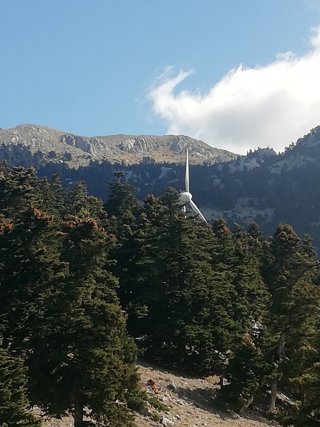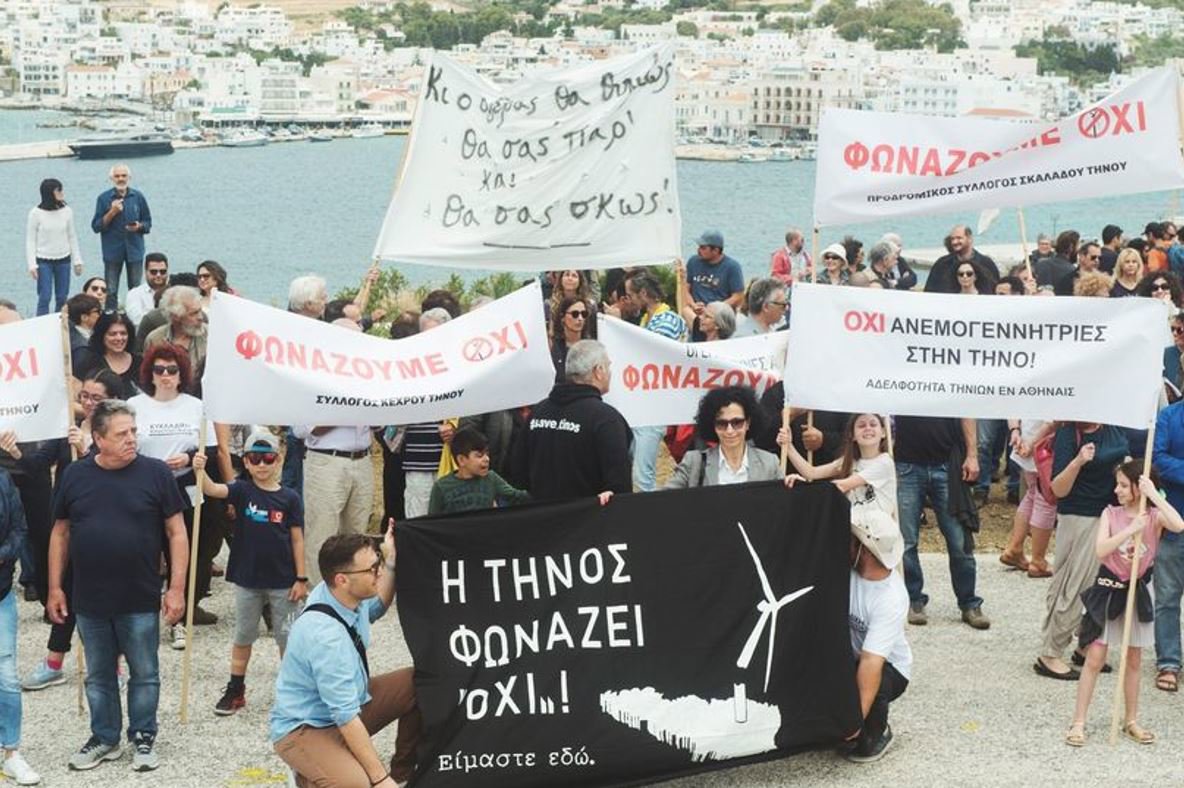Dr Elia Apostolopoulou is a Senior Research Fellow at the University of Cambridge. Her project focuses on the right to energy justice, as a key aspect of broader climate justice concerns, by exploring the public acceptance of different projects, ranging from governmental plans for oil and gas exploration to community energy projects. We caught up with Elia to find out more about her research and recent fieldwork.
What was the background and wider context of your research?
Since the 2008 financial crash, citizens across the globe have been placing issues of energy security, energy democratisation and climate justice at the core of their demands. Greece, a country that still suffers the consequences of a debt crisis that started in 2008, offers an emblematic case for exploring how contradictory governmental energy policies have fuelled public protests and grassroots initiatives that place at the epicenter of their demands issues of energy, climate and social justice. In particular, the overarching aim of this project is to explore 'the right to energy justice', as a key aspect of broader climate justice struggles, in post-crisis Greece by focusing on energy projects that have received or are currently receiving varying degrees of public support and/or opposition. This has primarily included the in-depth exploration of public opposition to the construction of wind farms across Greece since the most important struggles in the country have evolved the last two years around these projects.
What questions did you set out to answer?
The main research questions are to explore:
-
The social, environmental and spatial impacts of controversial energy projects and how these relate to energy and climate justice struggles.
-
Public perceptions regarding the distribution of the costs and benefits of these energy projects.
-
The opportunities and limits that current decision-making processes and governance arrangements offer to identify and address potential injustices related to controversial energy projects.
-
How community action is organis`ed across space to understand how different spatial formations shape resistance strategies, activist practices and grassroots innovations.
-
The potential of community grassroots initiatives to support transitions to social-environmental sustainability along with energy and climate justice.
We have explored these questions by conducting a number of in-depth interviews with key actors (policy makers, NGOs, local administrations) as well as through ethnographic research with local community members in selected areas across Greece where major conflicts around renewable energy projects have emerged.

Citizen's protest against the installation of wind turbines on Elikonas mountain in Viotia, Greece.
What examples of climate action and adaptation did you find?
In the majority of case studies, local communities have tried to formulate community-based climate adaptation plans. They have described the impacts of climate change to their village/town/region and highlighted the way local natural resources, landscapes, cultures as well as social relations are expected to be affected by ongoing projects.
In the case of wind plants construction, frontline communities have been actively challenging the core ideas of the 'green development/green capitalism' discourse and have been developing their own strategies and actions. Grassroots movements have, therefore, managed to express their opposition to the social-environmental impacts of controversial energy mega-projects, challenge the authorisation of industrial scale renewable energy projects within protected areas and collectively describe alternative pathways towards energy and climate justice. They have been offering a number of proposals, ranging from offshore wind farms, subsidised household photovoltaics, incentives for bioclimatic constructions and application of new advanced technologies for lignite plants that will significantly reduce pollutants to proposals for monitoring and controlling air pollution sources and safeguarding protected areas (e.g. Special Areas of Conservation, Special Protection Areas) from controversial energy investments.
What are the main findings of your research to date?
Local grassroots initiatives have so far addressed two questions of major importance: firstly, whether the current designation and implementation of wind plants in Greece affects positively or negatively the fight against climate change, and, secondly, whether the highly advertised and subsidised by the state 'green' investments worsen or improve nature conservation policies.
All the communities we talked to strongly believe that the current direction of energy investments in Greece, and primarily the construction of wind turbines, will have negative impacts on policies to combat climate change as well as significant and possibly irreversible impacts on natural ecosystems, landscapes and local communities. They have been also highlighting the paradox of undermining the national legislation for biodiversity conservation in order to achieve climate adaptation goals. This includes, inter alia, the acquisition of vast areas of land in remote island and mountain areas for the construction of wind turbines. Importantly, several local groups are trying to formulate comprehensive alternative proposals to current energy production and consumption patterns while also offering a more broad critique on green growth and mainstream sustainability discourses.

Wind turbines on Elikonas mountain in Viotia, Greece.
Do you have a highlight from your fieldwork?
Two case studies are of particular significance so far: Agrafa Mountains and the 14 South Aegean small islands and islets.
Agrafa is a Natura 2000 site and is considered the most important habitat for vultures in Pindos Mountains. The first 21 wind turbines that are planned to be constructed in the area (the overall plan includes 526 turbines) is expected to irreversibly alter almost a thousand acres of forest, including some of the most unspoiled Alpine Ridges of Greece. The local community, in solidarity with other grassroots initiatives across Greece, has been strongly opposing the construction of industrial scale wind farms in Agrafa both due to its major environmental impacts and wider implications for the area’s landscape that constitute a central component of their local community identity. It is important to emphasise here that their protests have often met police brutality as well as governmental ignorance towards their demands.
Another important case is the 14 small islands and islets that belong to the Municipalities of Astypalea, Anafi, Leros and Nisyros, also known as the 'Mediterranean Galapagos'. These offer refuge to rare species of birds in large populations (e.g. in 12 of the 14 islands we find the 5% of the global population of Mavropetritis - Falco eleonorae). The plan for the installation of 106 large wind turbines with a height of 150-200 meters within the core of protected areas and the construction of 14 ports and a number of roads with a total length of 72km have been strongly opposed from environmental movements, civil society organisations and a large part of the scientific community. So far, the environmental impact assessment has been rejected by the state and the alternative strategic plan proposed by the grassroots initiative that is opposing the project is gaining increasing acceptance.
What did you take away from your fieldwork and how will you use this going forward?
The controversy over the issue of the uncontrolled spread of wind turbines on the islands and mountains of Greece has reached a crucial point for communities as it happens in any conflict where major power asymmetries exist. During fieldwork, we observed that those movements and initiatives that have strong roots in local communities have successfully managed to establish solidarity relationships with various social groups as well as with other environmental movements, civil society organisations and scientific bodies. Building broader solidarity networks and strengthening collective action and direct democracy would be crucial not only for resisting the unequal impacts of controversial energy projects in Greece but also for formulating an effective alternative strategy opening the potential for a new emancipatory politics that would place the 'right to energy justice' at the core of social-environmental struggles.
More information about two community grassroots initiatives can be found on their web pages: Wind Watch Greece and Free Mountains Without Wind.

Elia’s research was supported by the Deutsche Post-Stiftung and SUN Institute Environment and Sustainability through an Environment and Sustainability Research Grant.
Find out more about the full range of grants available to support early-career and senior researchers with their fieldwork.


